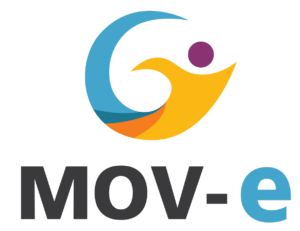Cross-cultural aspect
- In Poland family is extremely important. Every important event in a young person’s life is usually widely discussed by family members. The final decision regarding the event or issue, while taken by the young person, is expected to comply with the advice received from parents.
- In the Polish context of healthcare the doctor and/or the therapist advise the patient, showing various options, but it is the patient who must make the decision which option/treatment he/she will undergo. It may happen (as it is shown in the video) that he opinions of the members of the therapeutic team differ significantly.
- Sportspeople are considered to be both physically and emotionally strong, which puts pressure on an individual sportsperson who wants to live up to the expectations. They are likely to take decisions to benefit the team, even if their health may suffer because of them.
Intercultural communication recommendations:
- Physiotherapists should educate themselves about the patient’s cultural background, particularly regarding attitudes towards sports, achievement, and teamwork. Understanding these cultural nuances can help tailor the communication approach appropriately.
- Take the time to build a trusting relationship with the patient. Acknowledge their dedication to sports and their team, showing empathy for the impact the injury has on their identity and aspirations.
- Practice active listening to understand the patient’s emotional state, concerns, and goals related to their sports involvement. Allow them to express their feelings without judgment or interruption.
- Validate the patient’s emotions and the significance of sports in their life. Acknowledge their feelings of loss, frustration, or disappointment due to the injury’s impact on their ability to play professionally.
- While maintaining empathy, provide realistic expectations about the recovery process and the possibility of returning to professional basketball. Help the patient understand the importance of prioritizing their health and well-being over immediate sports participation.
- Explore alternative avenues for the patient to remain involved in sports or contribute to their team in different capacities, such as coaching, mentoring, or sports administration. Emphasize the value of their experience and expertise beyond playing on the court.
- Suggest the option of seeking psychological support or counselling to cope with the emotional impact of the injury and transition away from professional sports.
- Emphasize the importance of physiotherapy and rehabilitation in achieving the best possible recovery outcomes. Provide personalized treatment plans tailored to the patient’s needs and goals, considering their cultural attitudes towards health and wellness.
- Involve the patient in the decision-making process regarding their treatment plan and rehabilitation goals. Encourage them to take an active role in their recovery journey, empowering them to make informed choices about their health.
- What similarities have you noticed in your culture?
- What differences have you noticed in your culture?
- What should you pay attention to when caring for a patient with different cultural values?


Leave a Reply
Want to join the discussion?Feel free to contribute!